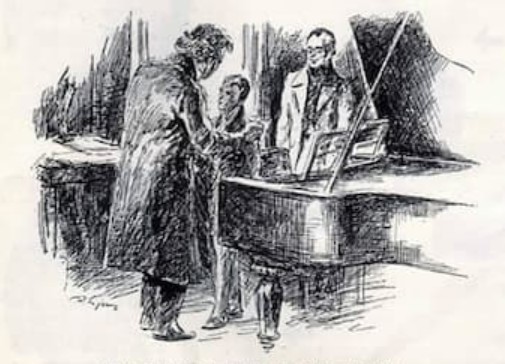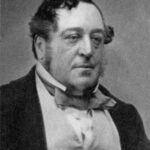In this article we remember the special occasion, when young Franz Liszt was introduced to Beethoven. This account was given by Liszt himself many decades later, in 1875.
Who was Franz Liszt?
Franz Liszt (22 October 1811 – 31 July 1886) was a Hungarian pianist composer, born in Doborján (Raiding, in German) in Sopron County, in the Kingdom of Hungary, part of the Austrian Empire.
His father was a musician, who played the piano, cello and violin. He personally knew both Haydn and Beethoven. Just as Haydn, he had been in the service of the Esterházy-family.
Young Liszt had very impressive progress in music. His first lessons with the piano were at age seven, at eight he was already composing and a year later he had his first public concerts.
After the death of his father, the Liszt-family moved to Paris and spent the next five years in the French capital. He had made lasting impression on the intellectuals of the city and he himself became a well-read thinker.
After the Paris-years he toured Europe and even beyond. His mastery of the piano made him a sensation on the continent and that accompanied with his attractive looks, made him a star and subject to Lisztomania (a term created by Heinrich Heine to describe the phenomenon).
Liszt died at the age of 74, in Bayreuth, Germany, on 31 July 1886. Many consider him the greatest pianist who ever lived.
Young Liszt meets Beethoven
It was Carl Czerny, teacher of young Liszt, who persuaded Beethoven (his former piano master) to meet this young, eleven years old boy and hear him play. Initially Beethoven was not convinced he wants to, as reportedly, he was not keen on meeting child prodigies. Czerny worked his old master, who finally gave in and cried, “In God’s name, then, bring me the young Turk!”
|Related: Was Beethoven a child prodigy, a Wunderkind?
On a fine April morning in 1823, the young Turk Liszt and his teacher Czerny entered Beethoven’s apartment in Schwarzspanier-house (his last dwelling place). He was working on something by a table at the window. They exchanged a few words and then Czerny lead the young boy to the piano.
Liszt first played a piece by Ries. When finished, Beethoven asked him for a Bach fugue. This time the boy chose the C-minor Fugue from the Well-Tempered Clavichord. The old master asked him if he could transpose the piece into another key. That he did successfully.
At this point Beethoven put his hand on the head of the boy, stroking his hair. “A devil of a fellow,” he said, “a regular young Turk!” Young Liszt, getting brave, asked if he can play something from him. Beethoven nodded. He played the first movement of the C-major Concerto.
The deeply moved Beethoven kissed the boy on the forehead and said, “Go! You are one of the fortunate ones! For you will give joy and happiness to many other people! There is nothing better or finer!”
Liszt has never forgotten this morning. In fact, he considered it his greatest pride, confessing “This event in my life has remained my greatest pride—the palladium of my whole career as an artist. I tell it but very seldom and—only to good friends!”





